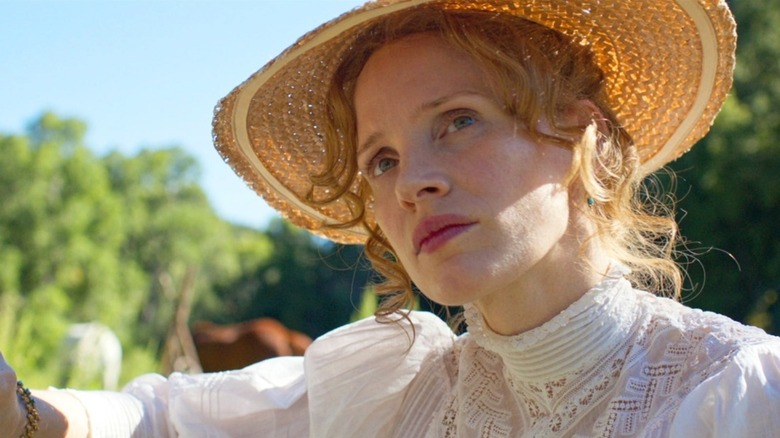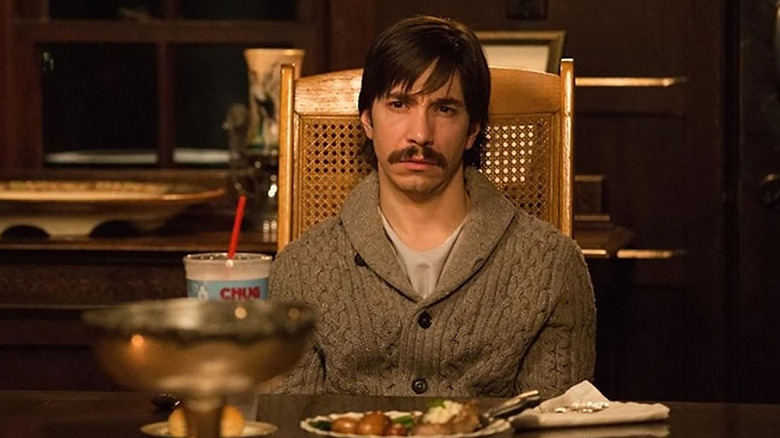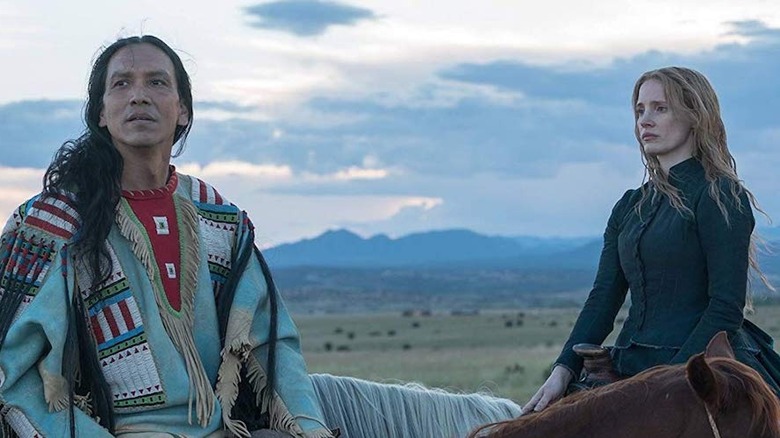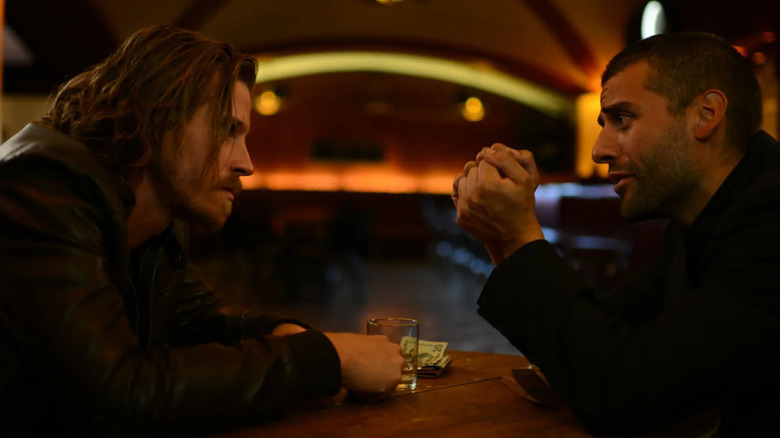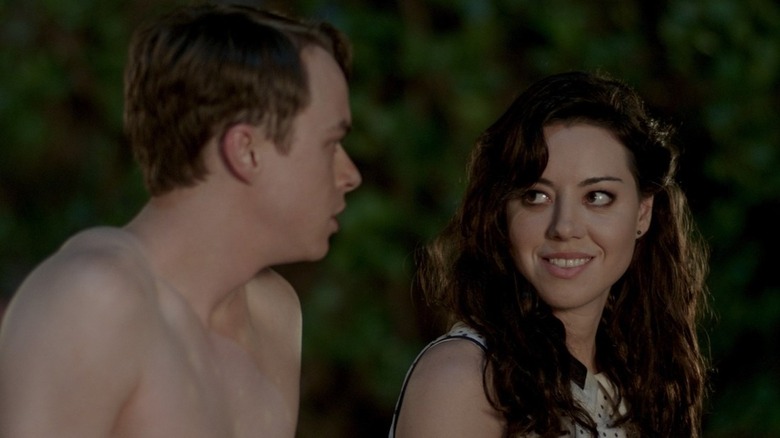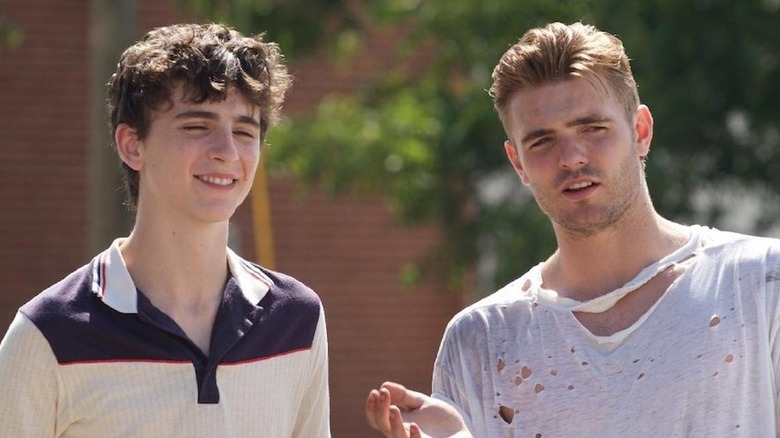A24 Movies With Bad Rotten Tomatoes Scores That Are Still Worth Watching
It's hard to believe that A24 is over 10 years old, but the company has quickly become one of the best contemporary distributors. Few distribution companies have developed their own recognizable aesthetic (Collider even published a list of "20 Films That Give Off A24 Vibes, But Aren't Actually A24") or are able to sell pricey hipster-style merchandise. But A24's curation of independent film has stoked the flames of cinephiles' passion for bold visions and imaginative stories. Their commitment to creating a platform for independent filmmaking feels refreshing in the glut of superhero and IP-driven releases. A24 has launched the careers of some of our most innovative filmmakers, including Greta Gerwig, Barry Jenkins, Alex Garland, Ari Aster, and Robert Eggers while bringing directors such as Harmony Korine and Sean Baker to a wider theatrical audience. But for every "Moonlight" or "Hereditary," there are other A24 films that have not been quite as well-received. Even though they have bad Rotten Tomatoes scores, they are still worth watching for all the things that make A24 so great: unconventional stories and boundless creativity.
Tusk
Kevin Smith's "ambitious, but messy" film "Tusk" has very unique origins. It was borne from the podcast episode "SModcast 259: The Walrus and The Carpenter" where Smith and producer Scott Mosier discussed an article about someone offering free room and board if you would dress as a walrus. After some giggly brainstorming, Smith asked his Twitter followers to tweet #WalrusYes if they wanted him to make the story into a film. It was a resounding #WalrusYes, and eventually, Justin Long was cast as a smug podcaster named Wallace who travels to Canada to meet Howard Howe, a strange shut-in offering to tell interesting stories. Howard is played by the delightfully bonkers Michael Parks.
"Tusk" strikes such a bizarre tone with its grotesque body horror and clownish comedy. It truly feels like you're watching someone's weed-infused nightmare, something so ridiculous and frightening at the same time. This did not exactly resonate with all critics, earning only a 45% score on Rotten Tomatoes. The final Wallace-as-a-walrus reveal makes your skin crawl. He is completely and unwillingly stripped of his humanity, unable to speak and his body fused into an animal. The sight of his transformation and the sound of his barking screams will never get out of your head. But then you watch two men dressed as walruses fighting to Fleetwood Mac's "Tusk," and you can't help but laugh. You'll never see anything quite like "Tusk."
Woman Walks Ahead
"Woman Walks Ahead" offers a thoughtful glimpse into a tempestuous period in American history when the Lakota people were fighting for the rights to their land. These events preceded the Wounded Knee Massacre. The highlight of the film is clearly the lead performances from Jessica Chastain as Catherine Weldon, a newly widowed portrait painter, and her subject, Michael Greyeyes as Sitting Bull. Sitting Bull was a strong and commanding Hunkpapa Lakota leader who defended the Sioux people from white oppression. Their growing and complex bond — which wavers from intellectual, slightly erotic, and emotional — keeps the audience on their toes, despite the film's plodding pace. What unites the unlikely pair is trying to break free in a society that cages them. It's a bit trite, but the actors make it work. Sam Rockwell also makes an intense appearance as a racist colonel, a role that echoes his Oscar win in "Three Billboards Outside Ebbing, Missouri."
Director Susanna White nearly sidesteps into white savior territory by having Catherine's advocacy for her new friend outshine the Lakota community's own perspective. Although the racial issues are painted a little broadly, "Woman Walks Ahead" still represents a piece from our past that deserves more recognition, and Chastain and Greyeyes bring it to life with such strength and elegance. This is why the film teeters at the edge of what qualifies for a splat, 59% on Rotten Tomatoes.
Mojave
"Mojave" features Oscar Isaac wearing a pink Speedo and holding a puppy. Do I really need to say more?
It's obvious that he's relishing in the very theatrical role of Jack, a sadistic wanderer with a weird accent who stalks a jaded movie star played by a blank-faced Garrett Hedlund. Tom journeys across the Mojave desert in search of ... enlightenment? Redemption? Punishment? This Biblical concept is never quite clear. "Mojave" never makes up its mind about what it is supposed to be — a slick neo-noir, a cutting Hollywood satire, or an artsy, esoteric drama. This inconsistency leaves the movie feeling, as the 32% critic consensus on Rotten Tomatoes says, like a "frustrating missed opportunity." But most of the cast makes up for it. Walton Goggins and Mark Wahlberg have great appearances in flashy roles as a lawyer and film producer, but "Mojave" mostly relies on the odd tension between Tom and Jack. Oscar Isaac's devilish charm is the obvious draw here, and he makes the philosophical drivel his character constantly espouses slightly more genuine than pretentious.
Life After Beth
Aubrey Plaza's bread and butter is playing outlandish, often intimacy-starved characters, as in "The To-Do List" or "Dirty Grandpa." But unlike those films, "Life After Beth" is grim and unsettling. It's difficult to find Beth's transformation into a raging, flesh-hungry zombie so shocking and hilarious when we've never seen her life before. The cast is strong, especially Dane DeHaan as a moody teen, Molly Shannon and John C. Reilly as Beth's sweet but mollycoddling parents, and Matthew Gray Gubler as an overly passionate security guard. However, the story is as /Film writer Russ Fischer says, "sloppy as splattered brains," receiving just a 45% on Rotten Tomatoes. The plot of the zombie uprising feels rushed, and many scenes are chaotic and difficult to understand because of the actors' constant yelling. But "Life After Beth" is still an interesting entry into the zombie genre, particularly because Plaza's wacky dedication is always a treat to watch. When Beth mutters "I'm dead, I'm alive," over and over again, we're left to ponder how scary occupying such a liminal state of being would be.
Hot Summer Nights
2017 was quite the year for Timothée Chalamet; he starred in Luca Guadagnino"s "Call Me By Your Name" and Greta Gerwig's "Lady Bird," then played another disaffected teen in the less well-received "Hot Summer Nights" written and directed by Elijah Bynum. While the former films received a 94% and 99% Rotten Tomatoes score, respectively, "Hot Summer Nights" is a splat with a 45% score. It has all the familiar elements of the teen movie genre: losing your virginity, falling for the hot girl next door, wistful narration, and a nostalgic soundtrack. "Hot Summer Nights" is rooted in its teenage boy perspective, ogling the girl of Daniel's dreams as she tantalizingly licks a lollipop, or taking in the slow-motion coolness of Hunter Strawberry (what a name!), the local rebel. Despite the stylistic coming-of-age familiarity, "Hot Summer Nights" also tries to be a gritty crime story when Daniel gets tangled up in drug dealing. "Hot Summer Nights" does move at a glacial pace and frames women as vacuous nags or sexual objects, but the film is worth checking out for Timothée Chalamet's rise to stardom — even with its low rating on Rotten Tomatoes.
